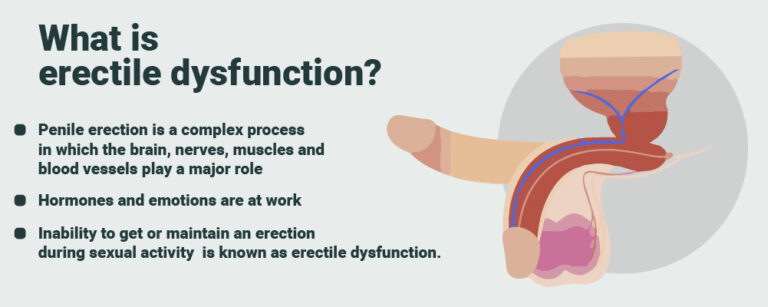Doctor Reveals The Best Medications For Female Infertility Issues

Table of Contents
Understanding Female Infertility Issues

Female infertility is a complex issue that affects a significant number of women worldwide. It refers to the inability of a woman to conceive after a year of unprotected intercourse. Understanding the various factors that contribute to female infertility is crucial in determining the appropriate treatment options.
There are several potential causes of female infertility, ranging from reproductive system abnormalities to hormonal imbalances. Structural abnormalities such as blocked fallopian tubes or uterine fibroids can hinder the fertilization process and implantation of the embryo. Hormonal imbalances, such as those associated with polycystic ovary syndrome (PCOS) or thyroid disorders, can disrupt ovulation and the regular menstrual cycle. Additionally, age plays a significant role in female infertility, as the quantity and quality of a woman’s eggs decrease with time. By identifying and addressing the underlying causes of infertility, healthcare professionals can develop targeted treatment plans to improve a woman’s chances of conceiving.
Common Causes of Female Infertility

Female infertility is a complex issue that can stem from various factors. One of the common causes of female infertility is hormonal imbalances. Hormones play a crucial role in the reproductive process, and any disruptions in their levels can negatively impact fertility. Conditions such as polycystic ovary syndrome (PCOS) and thyroid disorders can lead to hormonal imbalances, affecting ovulation and the overall reproductive function.
Another common cause of female infertility is structural abnormalities in the reproductive organs. Conditions such as uterine fibroids, polyps, or scar tissue can interfere with the implantation of a fertilized egg or disrupt the normal flow of sperm, making conception difficult. These structural issues can sometimes be treated through surgical interventions or with the help of specific medications.
It is essential to recognize that there can be multiple causes of female infertility, and it is often a combination of factors that contribute to reproductive challenges. Understanding the underlying causes is crucial in developing personalized treatment plans to address these issues effectively. In the subsequent sections, we will delve into different treatment options and medications that can help manage and improve fertility outcomes in women facing these challenges.
The Role of Medications in Treating Female Infertility

Medications play a crucial role in the treatment of female infertility, often being a first-line approach before considering more invasive procedures. These medications are designed to address specific underlying causes and help regulate hormonal imbalances, improve ovulation, and enhance the chances of conception. By targeting the root causes, medications can significantly increase the likelihood of successful fertility outcomes for women experiencing difficulties in conceiving.
In many cases, hormonal medications are prescribed to induce ovulation, particularly when irregular or absent ovulation is the underlying issue. Ovulation induction medications work by stimulating the ovaries to release eggs, increasing the chances of fertilization. Commonly used medications for ovulation induction include Clomiphene Citrate, Gonadotropin Injections, and Letrozole. These medications act on different aspects of the reproductive system, promoting the development and release of mature eggs. While each medication has its own benefits and risks, their effectiveness has been well-documented in numerous scientific studies, providing women with a range of options tailored to their individual needs.
Hormonal Medications for Ovulation Induction
Hormonal medications for ovulation induction are an important treatment option for women who are experiencing difficulties in conceiving. These medications work by regulating the hormonal balance in the body, stimulating the development and release of eggs from the ovaries.
Clomiphene citrate is a commonly prescribed medication for ovulation induction. It works by blocking the estrogen receptors in the brain, causing the body to produce more follicle-stimulating hormone (FSH). This, in turn, stimulates the growth and maturation of ovarian follicles, leading to ovulation. Clomiphene citrate is typically taken orally for a specific number of days during the menstrual cycle, under the guidance of a healthcare provider. It is important to note that while clomiphene citrate is generally well-tolerated, it may have some potential side effects and risks, such as hot flashes and multiple pregnancies. Therefore, close monitoring by a healthcare professional is crucial to ensure the safety and effectiveness of this medication.
Here’s a table summarizing hormonal medications commonly used for ovulation induction:
| Hormonal Medication | Description |
|---|---|
| Clomiphene Citrate | Clomiphene citrate is an oral medication that stimulates ovulation by blocking estrogen receptors in the hypothalamus. This leads to increased secretion of follicle-stimulating hormone (FSH) and luteinizing hormone (LH), which promote follicle development and ovulation. Clomiphene is typically taken orally for five days during the early follicular phase of the menstrual cycle. Side effects may include hot flashes, mood swings, and ovarian hyperstimulation syndrome (OHSS). |
| Letrozole | Letrozole is an aromatase inhibitor that is also used off-label for ovulation induction. It works by reducing estrogen levels, which in turn increases the production of FSH from the pituitary gland, leading to follicle development and ovulation. Letrozole is taken orally for five days during the early follicular phase of the menstrual cycle. Side effects may include hot flashes, headaches, and fatigue. |
| Gonadotropins | Gonadotropins are injectable medications containing follicle-stimulating hormone (FSH) and luteinizing hormone (LH). They directly stimulate follicle growth and development in the ovaries, leading to ovulation. Gonadotropins are administered via subcutaneous injection once daily, typically starting on day 2-4 of the menstrual cycle and continued until follicle maturity is achieved. Monitoring with ultrasound and blood tests is essential to adjust the dosage and prevent ovarian hyperstimulation syndrome (OHSS). Side effects may include injection site reactions, abdominal discomfort, and OHSS. |
| Human Chorionic Gonadotropin (hCG) | Human chorionic gonadotropin (hCG) is a hormone that triggers ovulation once the follicles are mature. It mimics the action of luteinizing hormone (LH), causing the release of the mature egg from the ovary. hCG is typically administered as an injection when the leading follicle(s) reach a certain size, as determined by ultrasound monitoring. Side effects may include injection site reactions, abdominal discomfort, and ovarian hyperstimulation syndrome (OHSS). |
The Benefits and Risks of Clomiphene Citrate
Clomiphene citrate, commonly known as Clomid, is a medication that is often prescribed to women experiencing fertility issues. It belongs to a class of drugs called selective estrogen receptor modulators (SERMs), which work by blocking the effects of estrogen in the body. Clomid is primarily used to stimulate ovulation in women with ovulatory disorders, such as polycystic ovary syndrome (PCOS). By regulating the release of hormones that stimulate the development and release of eggs, Clomid can help increase the chances of conception for women who are struggling to get pregnant.
One of the main benefits of Clomiphene citrate is its relatively low cost compared to other fertility medications and treatments. It is widely available and affordable, making it a popular choice for couples seeking fertility assistance. Additionally, Clomid is typically taken orally, which offers convenience and ease of use for patients. This medication has been shown to be effective in inducing ovulation in many women, leading to successful pregnancies. However, it is important to note that Clomid does not guarantee pregnancy, and its success rates can vary depending on the individual’s specific circumstances and underlying fertility issues.
As with any medication, Clomiphene citrate does come with potential risks and side effects. Some common side effects of Clomid include hot flashes, mood swings, breast tenderness, and changes in cervical mucus. In rare cases, it may also cause ovarian hyperstimulation syndrome (OHSS), a condition characterized by enlarged ovaries and abdominal discomfort. It is crucial for women taking Clomid to undergo regular monitoring and evaluation by their healthcare provider to minimize potential risks and ensure safe usage of the medication.
In conclusion, Clomiphene citrate is a widely prescribed and effective medication for women experiencing ovulatory disorders. It offers the benefits of affordability, convenience, and a relatively high success rate in inducing ovulation. However, potential risks and side effects should be considered, and close medical supervision is crucial to ensure safe and optimal treatment outcomes.
Gonadotropin Injections: A Powerful Tool for Ovarian Stimulation
Gonadotropin injections have emerged as a powerful tool in the field of reproductive medicine, particularly for women struggling with infertility. These injections contain follicle-stimulating hormone (FSH) and luteinizing hormone (LH), which are both essential for the growth and development of ovarian follicles. By directly stimulating the ovaries to produce multiple mature eggs, gonadotropin injections can significantly increase the chances of successful ovulation and pregnancy.
One of the main advantages of gonadotropin injections is their ability to be customized to each patient’s specific needs. The dosage and timing of the injections can be carefully adjusted to optimize follicular development and ensure the best possible outcome. This individualized approach has been shown to be particularly beneficial for women who do not respond well to other fertility medications or have certain medical conditions that affect ovarian function. However, it is important to note that gonadotropin injections must be administered under the supervision of a fertility specialist, as they can have potential side effects and require close monitoring to prevent complications.
Overall, gonadotropin injections offer a promising solution for women facing infertility, providing a powerful tool for ovarian stimulation. It is crucial for patients to consult with their healthcare provider to determine if this treatment option is suitable for their specific situation, taking into consideration both the benefits and risks associated with these injections. Continued advancements in reproductive medicine are likely to refine and improve the use of gonadotropin injections, paving the way for even greater success in helping women achieve their dream of parenthood.
Metformin and its Potential in Treating Polycystic Ovary Syndrome (PCOS)
Polycystic Ovary Syndrome (PCOS) is a common hormonal disorder that affects many women of reproductive age. It is characterized by a range of symptoms, including irregular periods, ovulation problems, and the presence of cysts on the ovaries. In addition to these challenges, women with PCOS often struggle with difficulties in conceiving. This is where Metformin, a medication commonly used to treat diabetes, comes into play.
Metformin has shown promise in the management of PCOS and its associated infertility. It works by improving insulin sensitivity and reducing insulin levels in the body, which in turn helps regulate the menstrual cycle and promote regular ovulation. Studies have suggested that using Metformin alone or in combination with other medications can significantly increase the chances of ovulation and improve fertility outcomes for women with PCOS. However, it is important to note that while Metformin has demonstrated positive effects in treating PCOS-related infertility, it may not be effective for all women, and individual responses to the medication can vary. Therefore, it is crucial for women with PCOS to consult with their healthcare providers to determine if Metformin is a suitable treatment option for their specific needs.
The Role of Letrozole in Ovulation Induction
Letrozole, also known as Femara, is a medication that has shown promise in the field of ovulation induction for women experiencing infertility. Originally used for the treatment of breast cancer, Letrozole works by inhibiting the enzyme aromatase, which plays a crucial role in the production of estrogen. By reducing estrogen levels, Letrozole stimulates the release of follicle-stimulating hormone (FSH) from the pituitary gland, leading to the development and maturation of ovarian follicles.
Studies have demonstrated that Letrozole can be an effective alternative to Clomiphene Citrate, another commonly used medication for ovulation induction. Compared to Clomiphene, Letrozole has been shown to achieve higher ovulation rates, as well as positively impact endometrial thickness. Additionally, Letrozole is associated with a lower risk of multiple pregnancies, making it an attractive option for women who wish to avoid the complications associated with carrying multiples.
It is important to note that while Letrozole has shown promise in ovulation induction, it is not without its potential side effects. Common side effects include hot flashes, headaches, and fatigue. In rare cases, Letrozole may also lead to ovarian hyperstimulation syndrome (OHSS), a condition characterized by the development of multiple ovarian cysts and fluid accumulation in the abdomen. Therefore, it is crucial for women undergoing Letrozole treatment to be closely monitored by a healthcare professional to ensure optimal outcomes and minimize potential risks.
Thyroid Medications and their Impact on Fertility
Thyroid disorders can have a significant impact on a woman’s fertility, making it difficult for her to conceive. The thyroid gland produces hormones that play a crucial role in regulating various bodily functions, including ovulation and menstruation. When the thyroid gland is not functioning properly, it can disrupt these processes and lead to infertility.
One common thyroid disorder that can affect fertility is hypothyroidism, where the thyroid gland does not produce enough hormones. This can result in irregular or absent menstrual cycles, anovulation (lack of ovulation), and difficulty in getting pregnant. Fortunately, thyroid medications can help regulate hormone levels and restore fertility in women with hypothyroidism. These medications, usually in the form of synthetic thyroid hormones such as levothyroxine, work by replacing the deficient thyroid hormones and restoring the normal functioning of the thyroid gland.
On the other hand, hyperthyroidism, where the thyroid gland produces an excessive amount of hormones, can also disrupt fertility. Women with hyperthyroidism may experience irregular menstrual cycles, reduced frequency of ovulation, and an increased risk of miscarriage. Treatment for hyperthyroidism typically involves medications that suppress the production of thyroid hormones, such as methimazole or propylthiouracil. By restoring the balance of thyroid hormones, these medications can improve fertility outcomes in women with hyperthyroidism.
It is important to note that thyroid medications need to be prescribed and monitored by a healthcare professional, preferably an endocrinologist or a reproductive specialist, to ensure optimal dosage and effectiveness. Regular blood tests to check thyroid hormone levels are essential to adjust the medication dosage, if needed, to achieve optimal balance. By addressing underlying thyroid disorders with appropriate medications, women with fertility issues related to thyroid problems can improve their chances of conceiving and having a healthy pregnancy.
Treating Endometriosis with Medications
Endometriosis is a complex and often painful condition that affects many women worldwide. Fortunately, there are several medications available that can help manage the symptoms and improve fertility outcomes for those struggling with endometriosis.
One commonly prescribed medication for endometriosis is a group of hormonal contraceptives that aim to suppress the menstrual cycle. These include birth control pills, patches, and hormonal intrauterine devices. By regulating the hormonal fluctuations that contribute to the growth of endometrial tissue outside the uterus, these medications can help reduce pain and inflammation associated with the condition.
In addition to hormonal contraceptives, another medication commonly used for endometriosis is gonadotropin-releasing hormone (GnRH) agonists. These medications work by suppressing the production of estrogen, which helps to shrink the endometrial growths and alleviate symptoms. Although highly effective, GnRH agonists may cause temporary menopause-like symptoms, such as hot flashes and bone loss, so careful consideration and monitoring by a healthcare provider is necessary during treatment.
Overall, the use of medications in combination with other treatment approaches, such as surgery or assisted reproductive technologies, can provide significant relief and improve fertility outcomes for women with endometriosis. However, it is important to consult with a healthcare provider to determine the most appropriate medication regimen based on individual needs and goals.
Medications to Address Uterine Abnormalities
The uterus, also known as the womb, plays a crucial role in female reproductive health. However, certain abnormalities in the uterus can hinder a woman’s ability to conceive and carry a pregnancy to term. Medications can be a valuable tool in addressing these uterine abnormalities, offering hope and potential solutions to women facing fertility challenges.
One common uterine abnormality is uterine fibroids, which are noncancerous growths that develop in the uterine wall. These fibroids can cause heavy or prolonged menstrual bleeding, pain during intercourse, and fertility issues. Medications such as gonadotropin-releasing hormone agonists (GnRH agonists) can be prescribed to shrink the fibroids and reduce their symptoms, making it easier for women to conceive. These medications work by suppressing the production of estrogen and progesterone, leading to a temporary menopause-like state. While effective in managing symptoms, these medications are typically used for a short period due to their potential side effects, such as hot flashes, mood swings, and bone loss. It is essential to consult with a healthcare professional to determine the most appropriate course of treatment for uterine fibroids based on individual needs and circumstances.
Surgical Medications for Female Infertility
Surgical interventions are often considered as a treatment option for female infertility when other methods have not been successful. These procedures aim to correct or address physical issues that may be hindering fertility. One common surgical medication for female infertility is the hysteroscopy. This minimally invasive procedure allows doctors to examine the inside of the uterus and remove any growths or abnormalities that may be affecting fertility. By correcting these issues, hysteroscopy can help improve the chances of successful conception.
Another surgical medication that can be used for female infertility is laparoscopy. This procedure involves making small incisions in the abdomen to access and examine the reproductive organs, such as the ovaries, fallopian tubes, and uterus. During laparoscopy, doctors can detect and treat conditions like endometriosis, ovarian cysts, or adhesions, which may be causing fertility problems. By eliminating these obstacles, laparoscopy can enhance the chances of pregnancy.
It is important to note that while surgical medications can be effective in treating female infertility, they are not appropriate for all cases. The decision to pursue surgical intervention should be made in consultation with a fertility specialist, who will consider individual factors and determine the most suitable course of action. Additionally, it is crucial to understand the risks and potential complications associated with these procedures, and to thoroughly discuss them with a healthcare professional before making a decision.
Alternative Medications: Exploring Herbal Remedies and Supplements
When it comes to exploring alternative medications for female infertility, many individuals turn to herbal remedies and supplements. These natural options have long been used in traditional medicine and are believed to offer various benefits for reproductive health. However, it is important to approach these alternative medications with caution and consult with a healthcare professional before incorporating them into your fertility treatment plan.
One popular herbal remedy that is often used for female infertility is chasteberry, also known as Vitex agnus-castus. This herb is thought to have a positive effect on hormone balance and may help regulate the menstrual cycle. While some studies have suggested a potential benefit of chasteberry for improving fertility outcomes, more research is needed to fully understand its effectiveness. Additionally, it is important to note that herbal remedies can interact with other medications and may have side effects, so it is crucial to seek guidance from a knowledgeable healthcare provider before using chasteberry or any other herbal remedy for infertility.
Supplements, such as Coenzyme Q10 and DHEA (dehydroepiandrosterone), are also commonly explored as alternative medications for female infertility. Coenzyme Q10 is an antioxidant that is naturally produced by the body and plays a role in energy production. Some studies have suggested that Coenzyme Q10 supplementation may improve egg quality and ovarian function in women undergoing fertility treatment. Similarly, DHEA has been studied for its potential to enhance fertility by improving egg quality and ovarian reserve. However, it is important to note that not all women may benefit from these supplements, and individualized guidance from a healthcare professional is essential to ensure their appropriate use and monitoring.
• Chasteberry, also known as Vitex agnus-castus, is a popular herbal remedy used for female infertility.
• It is believed to have a positive effect on hormone balance and may help regulate the menstrual cycle.
• While some studies suggest potential benefits, more research is needed to fully understand its effectiveness.
• Herbal remedies can interact with other medications and may have side effects, so it’s important to consult with a healthcare professional before use.
• Coenzyme Q10 and DHEA are commonly explored supplements for female infertility.
• Coenzyme Q10 is an antioxidant that plays a role in energy production and may improve egg quality and ovarian function.
• Studies have suggested that DHEA could enhance fertility by improving egg quality and ovarian reserve.
• Not all women may benefit from these supplements, so individualized guidance from a healthcare professional is crucial.
Combining Medications and Assisted Reproductive Technologies (ART) for Improved Fertility Outcomes
Combining Medications and Assisted Reproductive Technologies (ART) for Improved Fertility Outcomes:
When it comes to treating infertility, a combination of medications and assisted reproductive technologies (ART) has shown promising results in improving fertility outcomes for couples struggling to conceive. ART refers to procedures such as in vitro fertilization (IVF), intrauterine insemination (IUI), and intracytoplasmic sperm injection (ICSI), which are used to assist couples in achieving pregnancy.
The use of medications in conjunction with ART aims to optimize the chances of a successful pregnancy by addressing specific fertility issues. Medications such as clomiphene citrate, gonadotropin injections, letrozole, and metformin have been commonly used as part of fertility treatment protocols. These medications work by stimulating ovulation, regulating hormonal imbalances, and addressing underlying conditions such as polycystic ovary syndrome (PCOS) and endometriosis. By combining these medications with ART procedures, healthcare providers can tailor treatment plans to individual needs, potentially increasing the chances of a successful pregnancy.
It is important to note that the use of medications and ART should always be guided by a healthcare professional specializing in reproductive medicine. Each case is unique, and the appropriate combination and dosage of medications along with ART will depend on factors such as the couple’s medical history, age, and specific fertility issues. By working closely with a fertility specialist, couples can receive personalized treatment plans that offer the best chance of achieving their dream of parenthood.
What are some common causes of female infertility?
Some common causes of female infertility include hormonal imbalances, ovulation disorders, polycystic ovary syndrome (PCOS), endometriosis, uterine abnormalities, and certain medical conditions.
How do hormonal medications help in treating female infertility?
Hormonal medications are used to regulate hormone levels and promote ovulation in women who have difficulty ovulating on their own. These medications can help stimulate the ovaries to release mature eggs.
What is clomiphene citrate and what are its benefits and risks?
Clomiphene citrate is a commonly used medication for ovulation induction. It helps stimulate the release of hormones that trigger ovulation. The benefits include improved ovulation and increased chances of conception. However, it may also have side effects such as hot flashes, mood swings, and ovarian cysts.
What are gonadotropin injections and how do they stimulate ovarian stimulation?
Gonadotropin injections contain follicle-stimulating hormone (FSH) and luteinizing hormone (LH) to directly stimulate the ovaries. These injections can promote the development of multiple eggs, increasing the chances of successful fertilization and pregnancy.
Can metformin be used to treat polycystic ovary syndrome (PCOS)?
Yes, metformin is commonly used to treat PCOS. It helps regulate insulin levels and improve hormonal balance, which can aid in ovulation and improve fertility outcomes for women with PCOS.
What is the role of letrozole in ovulation induction?
Letrozole is an aromatase inhibitor that can help stimulate ovulation in women who have irregular or absent ovulation. It works by suppressing estrogen production and promoting follicle growth in the ovaries.
How do thyroid medications impact fertility?
Thyroid medications help regulate thyroid hormone levels, which are important for reproductive function. Maintaining proper thyroid function can improve fertility outcomes in women with thyroid disorders.
Can medications help treat endometriosis?
Yes, medications such as hormonal contraceptives, gonadotropin-releasing hormone (GnRH) agonists, and nonsteroidal anti-inflammatory drugs (NSAIDs) can be used to manage endometriosis symptoms and improve fertility in some cases.
Are there medications available to address uterine abnormalities?
Yes, certain medications, such as progesterone or gonadotropin-releasing hormone (GnRH) agonists, may be prescribed to address uterine abnormalities and improve the chances of successful implantation and pregnancy.
Can surgical medications be used to treat female infertility?
Yes, surgical medications may be used in certain cases of female infertility. Surgical interventions, such as laparoscopy or hysteroscopy, can help correct structural abnormalities or remove growths that may be affecting fertility.
Are there any alternative medications or herbal remedies that can improve fertility?
While alternative medications and herbal remedies are often marketed as natural fertility boosters, their efficacy is not well-established. It is important to consult with a healthcare professional before using any alternative medications or supplements for fertility purposes.
How can combining medications and assisted reproductive technologies (ART) improve fertility outcomes?
Combining medications, such as ovulation induction drugs, with ART procedures like in vitro fertilization (IVF) can optimize fertility outcomes. Medications can help stimulate egg production, regulate hormone levels, and improve the chances of successful fertilization and pregnancy during ART procedures.






